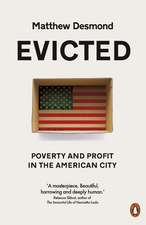The Moynihan Report Revisited:: Lessons and Reflections after Four Decades: The ANNALS of the American Academy of Political and Social Science Series
Editat de Douglas S. Massey, Robert J. Sampsonen Limba Engleză Hardback – 8 feb 2009
As assistant secretary in the United States Department of Labor, Daniel Patrick Moynihan wrote his report "The Negro Family: The Case for National Action" in 1965 as an internal document within the administration of President Lyndon B. Johnson. It described alarming trends in black employment, poverty, and education and argued that they were exacerbated by black family instability. While Moynihan called for a jobs program to employ black men and stabilize families, the report was attacked as an attempt to blame blacks rather than the injustices in American society and widely vilified as sexist and racist in liberal circles.
Now more than 40 years later, this issue of The ANNALS reviews this controversial yet "prophetic report" through a new lens, bringing together some of the country's foremost social scientists to consider how its arguments and predictions have fared in subsequent years and how the controversy surrounding it influenced social science in the late 20th century.
The volume also examines current issues, such as the state of the labor market for young black men in the face of continued discrimination, the link between nonmarital childbearing and poverty, the impacts of the radical transformation in the welfare system, the emergence of mass incarceration society and the persistence of racial residential segregation.
As race remains a fundamental cleavage in American society, intellectuals must embrace the systematic study of the sorts of difficult, sensitive, and often explosive issues first addressed in the Moynihan Report. This volume of The ANNALS is a must-read for students, scholars and policymakers who are ready for a more open, honest and civil debate on America's very real social problems today.
| Toate formatele și edițiile | Preț | Express |
|---|---|---|
| Paperback (1) | 477.03 lei 6-8 săpt. | |
| SAGE Publications – 8 feb 2009 | 477.03 lei 6-8 săpt. | |
| Hardback (1) | 449.75 lei 6-8 săpt. | |
| SAGE Publications – 8 feb 2009 | 449.75 lei 6-8 săpt. |
Din seria The ANNALS of the American Academy of Political and Social Science Series
-
 Preț: 524.32 lei
Preț: 524.32 lei -
 Preț: 474.53 lei
Preț: 474.53 lei -
 Preț: 298.59 lei
Preț: 298.59 lei -
 Preț: 299.58 lei
Preț: 299.58 lei -
 Preț: 296.68 lei
Preț: 296.68 lei -
 Preț: 296.68 lei
Preț: 296.68 lei -
 Preț: 296.68 lei
Preț: 296.68 lei -
 Preț: 299.58 lei
Preț: 299.58 lei -
 Preț: 296.68 lei
Preț: 296.68 lei -
 Preț: 297.66 lei
Preț: 297.66 lei -
 Preț: 299.58 lei
Preț: 299.58 lei -
 Preț: 296.68 lei
Preț: 296.68 lei -
 Preț: 297.66 lei
Preț: 297.66 lei - 5%
 Preț: 281.84 lei
Preț: 281.84 lei - 5%
 Preț: 284.59 lei
Preț: 284.59 lei -
 Preț: 298.59 lei
Preț: 298.59 lei -
 Preț: 299.58 lei
Preț: 299.58 lei -
 Preț: 296.68 lei
Preț: 296.68 lei -
 Preț: 299.19 lei
Preț: 299.19 lei -
 Preț: 470.70 lei
Preț: 470.70 lei -
 Preț: 469.34 lei
Preț: 469.34 lei -
 Preț: 469.34 lei
Preț: 469.34 lei -
 Preț: 469.34 lei
Preț: 469.34 lei -
 Preț: 477.03 lei
Preț: 477.03 lei -
 Preț: 474.15 lei
Preț: 474.15 lei - 15%
 Preț: 563.44 lei
Preț: 563.44 lei -
 Preț: 468.75 lei
Preț: 468.75 lei -
 Preț: 469.90 lei
Preț: 469.90 lei -
 Preț: 483.78 lei
Preț: 483.78 lei
Preț: 449.75 lei
Preț vechi: 529.12 lei
-15% Nou
Puncte Express: 675
Preț estimativ în valută:
86.06€ • 90.04$ • 71.49£
86.06€ • 90.04$ • 71.49£
Carte tipărită la comandă
Livrare economică 03-17 aprilie
Preluare comenzi: 021 569.72.76
Specificații
ISBN-13: 9781412974028
ISBN-10: 141297402X
Pagini: 328
Greutate: 0.61 kg
Ediția:First Edition
Editura: SAGE Publications
Colecția Sage Publications, Inc
Seria The ANNALS of the American Academy of Political and Social Science Series
Locul publicării:Thousand Oaks, United States
ISBN-10: 141297402X
Pagini: 328
Greutate: 0.61 kg
Ediția:First Edition
Editura: SAGE Publications
Colecția Sage Publications, Inc
Seria The ANNALS of the American Academy of Political and Social Science Series
Locul publicării:Thousand Oaks, United States
Descriere
As assistant secretary in the United States Department of Labor, Daniel Patrick Moynihan wrote his report "The Negro Family: The Case for National Action" in 1965 as an internal document within the administration of President Lyndon B. Johnson. It described alarming trends in black employment, poverty, and education and argued that they were exacerbated by black family instability. While Moynihan called for a jobs program to employ black men and stabilize families, the report was attacked as an attempt to blame blacks rather than the injustices in American society and widely vilified as sexist and racist in liberal circles.
Now more than 40 years later, this issue of The ANNALS reviews this controversial yet "prophetic report" through a new lens, bringing together some of the country's foremost social scientists to consider how its arguments and predictions have fared in subsequent years and how the controversy surrounding it influenced social science in the late 20th century.
Now more than 40 years later, this issue of The ANNALS reviews this controversial yet "prophetic report" through a new lens, bringing together some of the country's foremost social scientists to consider how its arguments and predictions have fared in subsequent years and how the controversy surrounding it influenced social science in the late 20th century.
















